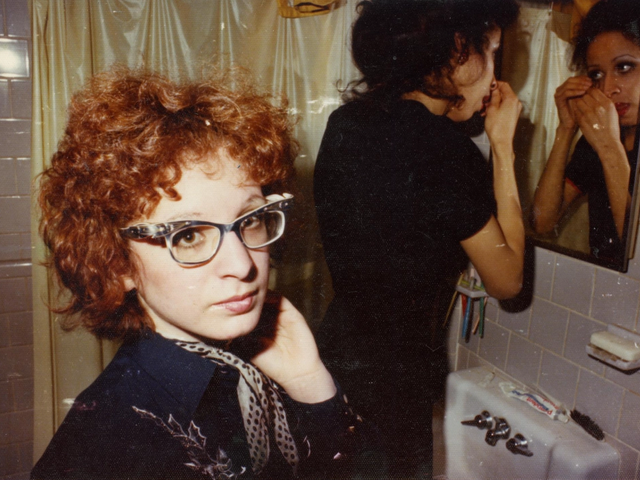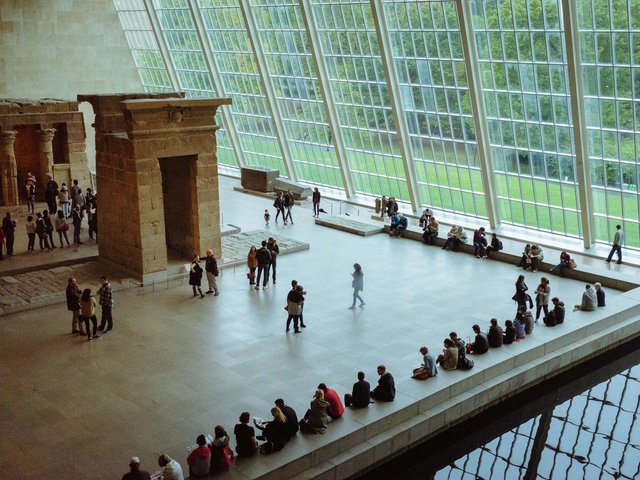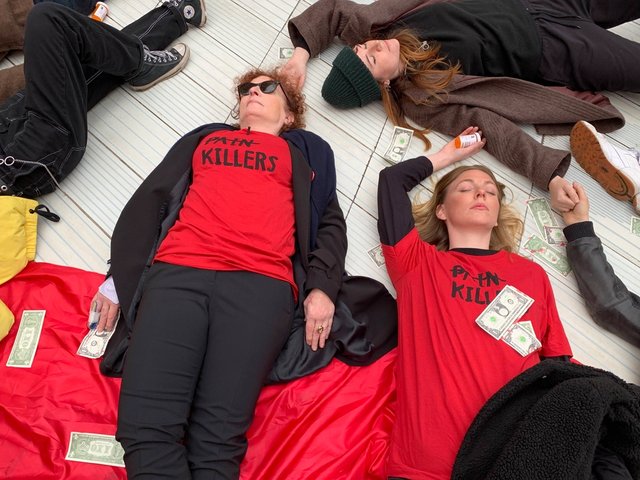The Victoria and Albert museum (V&A) in London has removed the Sackler name from its galleries. The name has become indelibly linked to the global opioid crisis that some members of the family profited enormously from—and are accused of fuelling—via their company Purdue Pharma.
A spokesperson for the V&A told The Art Newspaper: “The V&A and the family of the late Dr. Mortimer D. Sackler have mutually agreed that the V&A’s Centre for Arts Education and Exhibition Road courtyard will no longer carry the Sackler name. Dame Theresa Sackler was a trustee of the V&A between 2011 and 2019, and we are immensely grateful for her service to the V&A over the years. We have no current plans to rename the spaces.”
Members of the Sackler family owned the now bankrupt US pharmaceutical company Purdue Pharma, who manufactured, distributed and marketed the highly addictive drug Oxycontin. Purdue Pharma filed for bankruptcy in 2019 after around 2,700 lawsuits were filed against the company. Prosecuting lawyers claimed Purdue Pharma aggressively sold the benefits of OxyContin to doctors, who then prescribed the drug to patients. The highly addictive narcotic has contributed to more than 500,000 deaths in America over the last two decades, campaigners say. A legal agreement regarding a negotiated payout to the families of US victims to OxyContin, currently totalling in the region £5.4bn, remains mired in US court proceedings.
Before the dangers of the opioid drug were fully known, members of the Sackler family rose to prominence as generous patrons of arts and educational institutions on both sides of the Atlantic. Those same museums and universities are now rushing to disavow the family name. The V&A museum are the latest in a long line of major cultural institutions—including the Tate, London's National Gallery and Serpentine Galleries, the British Museum, the Louvre in Paris, and the Metropolitan Museum of Art in New York—to remove the name.
Visitors to the V&A, entering on Exhibition Road, were until this weekend greeted with prominent signs directing them to the "Sackler Centre for Arts Education", as well as the "Sackler Courtyard". Both signs have now been taken down.
The museum, which is directed by the former UK politician Tristram Hunt, said in a statement that the decision had been taken in agreement and accordance with the family of the late Mortimer D Sackler, the US-born, British psychiatrist who co-founded Purdue Pharma with his brother, Raymond, and began manufacturing and selling Oxycontin in 1996. The V&A say the decision to cut ties with the Sackler family was made in May this year.
The museum's announcement of the disassociation comes just a few days before a documentary about the artist Nan Goldin's campaign against Sackler family members screens in a gala slot at the opening weekend of the London Film Festival on 8 October. The film, titled All the Beauty and the Bloodshed, is directed by Laura Poitras, who is known for her role in the Edward Snowden leaks at the US National Security Agency in 2013. All the Beauty and the Bloodshed won the Golden Lion for best film at the 79th Venice international film festival in September this year.
The documentary also screened at the Toronto International Film Festival and will play later this year at the New York Film Festival. American distributor Neon and British distributor Altitude will show the film in cinemas, with a release date in the autumn for US cinemas and in January for UK cinemas.
The American photographic artist, famous for her 1986 photography series The Ballad of Sexual Dependency, is a former opioid addict who founded Prescription Addiction Intervention Now (PAIN) in early 2019, an advocacy group that campaigns against the Sackler family’s sponsorship of—and integration into—the institutional art world.
The influential British costume designer Sandy Powell, who has worked on award-winning films The Young Victoria, Shakespeare in Love and The Aviator, last week used an acceptance speech to pay tribute to Goldin and call out the V&A’s continued relationship with members of the Sackler family. Powell was speaking at the London Design Festival awards after winning the London Design Medal; the award ceremony was held at the V&A.
PAIN’s first major intervention came on 10 March 2018, when Goldin led dozens of protestors to the Sackler Wing of New York’s Metropolitan Museum of Art, where they staged a ‘die-in’. The group also threw hundreds of pill bottles into the museum’s pool by the Egyptian Temple of Dendur. Labels on the pill bottles read: “Prescribed to you by the Sackler Family.”
In November 2019, PAIN staged a similar public protest at the V&A, where Goldin led 30 protestors in a staged die-in, before placing bottles of pills and “Oxy dollar” bills stained red on the museum's floor.
A retrospective billed as the “first to comprehensively present Goldin as a filmmaker” opens at the Moderna Museet in Stockholm on 29 October. The role of some Sackler family members in the opiate crisis was documented in the acclaimed book Empire of Pain, by the investigative journalist Patrick Radden Keefe, released last year.





